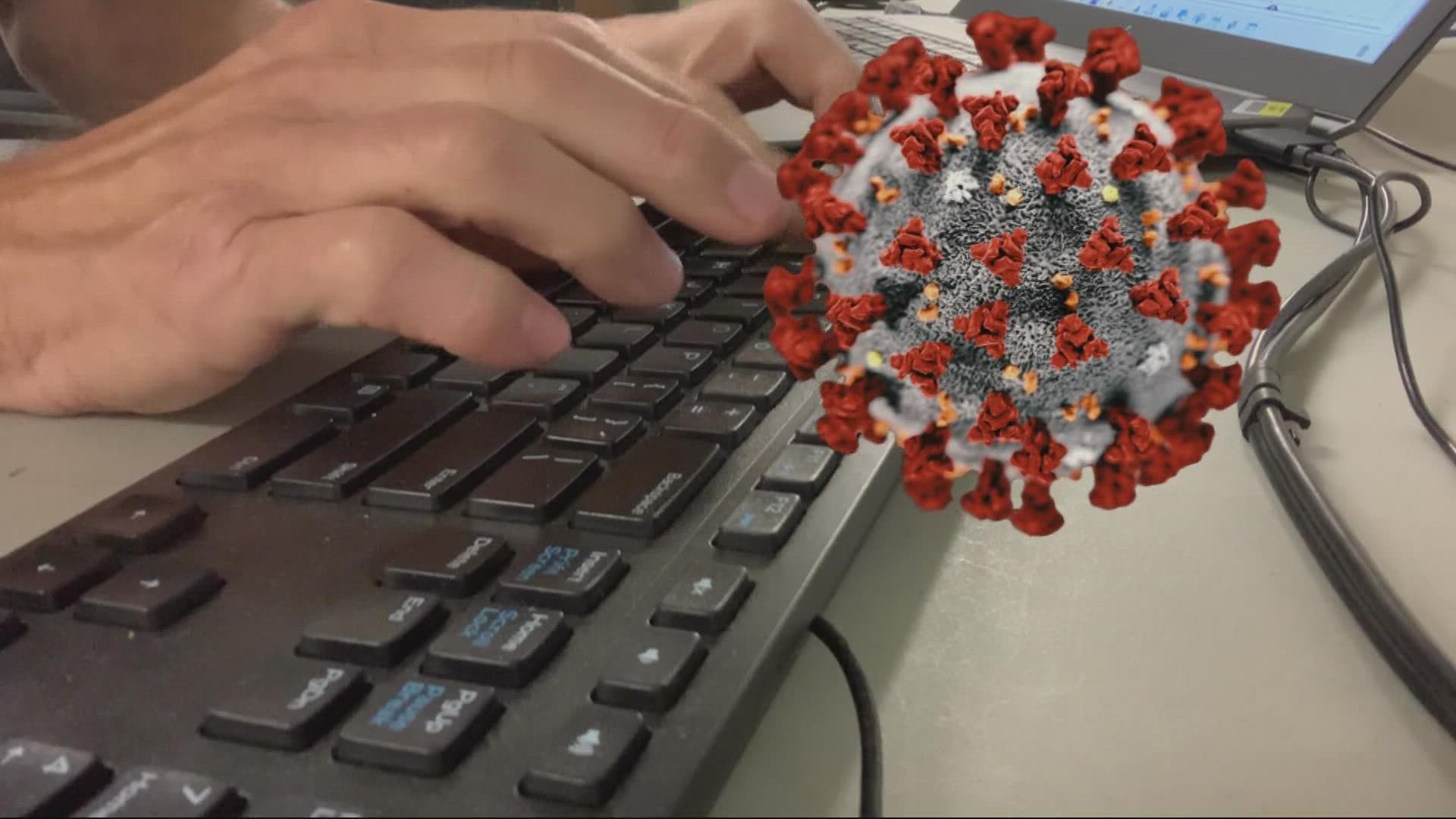VANCOUVER, Wash. — Misinformation is nothing new, and social media has allowed it to spread like wildfire. You can see it in responses to data-driven posts about the benefits of vaccines and masking on the Clark County Public Health Facebook page.
In response to a recent post, one person wrote "People following this nonsense are deceived." Another wrote, "This is a dangerously misleading post."
That presents a challenge for people like Marissa Armstrong, a senior communications specialist with Clark County Public Health. Armstrong said she tries to see it as an opportunity.
“People are surrounded by misinformation and they're seeing it everywhere," said Armstrong. "It gives us a chance to correct misinformation and provide people with accurate information and science-based information."
It is not easy when people respond with links or comments that fly in the face of reality, or that use partial information to sow distrust of medical experts. Managing a social media website for a public health organization is a balance between free speech online and providing a place to learn the truth about the coronavirus pandemic.
“A lot of our policies for commenting on our page are really if it crosses that line of threatening or harassment,” said Armstrong. She said removing comments does not happen often, as difficult as that may be at times.
“We have science that shows that the vaccines are effective, that they’re keeping people out of the hospital and they’re preventing deaths, and it can be frustrating to see that data misrepresented, and seeing the detriment," said Armstrong of rising COVID-19 cases.
But Armstrong said things have been getting better, thanks to other commenters stepping up.
“Early on you would just see a lot of misinformation, but we're starting to see more people come out and say, ‘that's wrong, that's not true,’ or providing their own links to the CDC or other reliable sources to push back."
That kind of support keeps public health communicators like Armstrong hopeful.
“We keep trying to get accurate information out, we keep trying to counter the misinformation and really just to emphasize to people that the vaccines are going to be the best way to keep yourself healthy, keep yourself out of the hospital and prevent deaths.”
Armstrong recommended that anyone who has questions about COVID-19 and their health should speak directly with their medical provider or a trusted medical professional.

